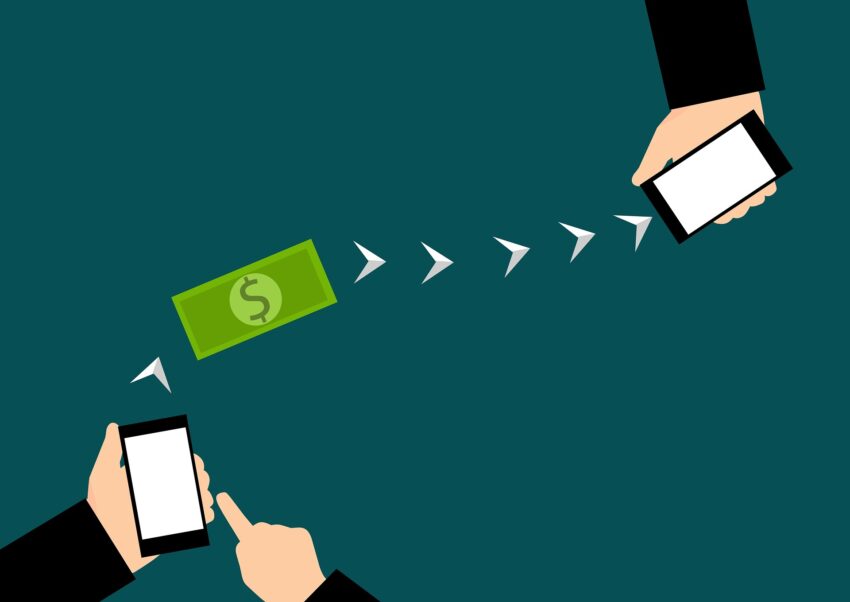You’ve probably heard of Bitcoin and other cryptocurrencies. They’re digital or virtual tokens that can be used to buy goods and services, or traded for other currencies. Bitcoin and other cryptocurrencies are decentralized, meaning they aren’t subject to government or financial institution control. Transactions are verified by a network of computers, and then recorded in a digital ledger called a blockchain. Cryptocurrencies are often bought with “fiat” currencies, such as dollars, euros, yen, and yuan. But you can also use them to pay for goods and services, or trade them for other cryptocurrencies.

WHAT IS A CRYPTOPAYMENT?
A cryptopayment is a payment made using cryptocurrency, which is a digital or virtual currency that uses cryptography for security and is decentralized, meaning it is not controlled by any central authority such as a government or bank. Cryptopayments are increasingly being used as an alternative to traditional forms of payment, such as cash, checks, and credit cards, due to their increased security and speed of transaction. Because cryptocurrencies are not subject to the same regulations and restrictions as traditional forms of currency, they can be an attractive option for making payments, especially for online transactions.

HOW DO CRYPTOPAYMENTS WORK?
Cryptopayments typically work by using a digital wallet, which is a software program that allows users to store, send, and receive cryptocurrency. The digital wallet uses a unique digital address, which is similar to a bank account number, to identify the user’s account. When a user wants to make a payment using cryptocurrency, they enter the recipient’s digital address and the amount of cryptocurrency they want to send. The transaction is then verified by a network of computers, known as nodes, using a process called mining. Once the transaction is verified, it is added to the blockchain, which is a public ledger of all cryptocurrency transactions. This process typically takes a few minutes to complete, and once it is complete, the payment is considered to be final and cannot be reversed.
WHAT ARE THE BENEFITS OF USING CRYPTOPAYMENTS?
There are several benefits to using cryptopayments, including:
- Increased security: Cryptocurrencies use advanced encryption techniques to secure transactions and protect users’ financial information. This makes them less vulnerable to fraud and hacking than traditional forms of payment.
- Faster transactions: Because cryptocurrencies are decentralized and not subject to the same regulations as traditional forms of currency, transactions can be processed much more quickly. This can be especially useful for online transactions, where traditional payment methods can be slow and cumbersome.
- Lower transaction fees: Because cryptocurrencies are not subject to the same fees and charges as traditional forms of payment, users can often save money on transaction fees when using them.
- Greater flexibility: Cryptocurrencies can be used to make payments anywhere in the world, at any time, without the need for a bank or other financial institution to facilitate the transaction. This makes them a convenient option for users who want to make payments quickly and easily, regardless of where they are located.
Overall, the use of cryptopayments offers many benefits over traditional forms of payment, making them an attractive option for users who want to make secure, fast, and convenient payments online.

WHAT ARE THE FEES ASSOCIATED WITH CRYPTOPAYMENTS?
The fees associated with cryptopayments can vary depending on a number of factors, including the type of cryptocurrency being used, the amount being sent, and the location of the recipient. In general, however, the fees for making a cryptopayment are typically much lower than the fees associated with traditional forms of payment, such as credit cards or bank transfers.
One of the reasons for this is that cryptocurrencies are not subject to the same regulations and fees as traditional forms of currency. For example, banks and other financial institutions often charge fees for processing transactions, converting currencies, and maintaining accounts. Cryptocurrencies, on the other hand, are decentralized and not subject to these fees.
Additionally, because cryptocurrencies are not controlled by any central authority, there are no middlemen involved in processing transactions. This means that users can send and receive payments directly, without having to go through a bank or other intermediary. This can help to reduce transaction fees and make cryptopayments a more cost-effective option.
Overall, while the exact fees associated with cryptopayments can vary, they are generally much lower than the fees associated with traditional forms of payment. This can make them an attractive option for users who want to make payments quickly and easily without incurring high fees.
HOW TO AVOID PAYING FEES ON CRYPTOPAYMENTS
There are a few ways that users can avoid paying fees on cryptopayments, including:
- Use a cryptocurrency exchange that does not charge fees: Some cryptocurrency exchanges do not charge fees for making transactions, or only charge minimal fees. By using one of these exchanges, users can avoid paying high fees on their cryptopayments.
- Use a cryptocurrency that has low transaction fees: Some cryptocurrencies, such as Bitcoin Cash and Litecoin, have lower transaction fees than others, such as Bitcoin and Ethereum. By choosing to use one of these cryptocurrencies, users can reduce the fees they pay on their cryptopayments.
- Use a wallet that allows users to set their own transaction fees: Some digital wallets allow users to set the transaction fees they want to pay when making a cryptopayment. By setting a low fee, users can reduce the cost of their transactions.
Overall, by using one of these strategies, users can avoid paying high fees on their cryptopayments and make their transactions more cost-effective.
CONCLUSION
Overall, cryptopayment fees can be confusing and expensive. However, if you know what you’re doing, you can avoid most of the common fees. Use this guide as a starting point to under standing cryptopayment fees so that you can make the best decisions for your own finances.

